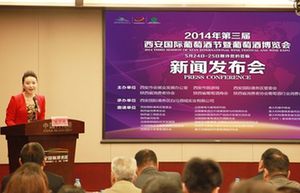Farmers prepared to reap benefits from land reform
By Wang Zhenghua in Anhui province and He Na in Beijing ( China Daily ) Updated: 2013-12-04 09:26:18Land as collateral
"More farmers will benefit from the rural land reform and their incomes and standard of living will improve hugely," said Qin Fu, director of the Institute of Agricultural Economics and Development at the Chinese Academy of Agricultural Sciences.
"The decision on rural land reform is an attempt by the central government to protect farmers' property rights and raise their incomes," he said.
Qin explained that although the annual growth rate of rural residents' incomes has overtaken that of urban residents in recent years, the low base from which they started means that the increase hasn't narrowed the income gap between the two groups. Instead, that gap is continuing to grow.
"When farming doesn't provide farmers with a higher income, the money they can make from their property becomes crucial to their survival. The decision to allow land-rights transfers is an attempt to increase farmers' incomes by allowing the sale, lease and demutualization of rural land," said Qin. He added that moves are underway to establish the identities of all land rights holders nationwide, a task that should be completed by 2015.
He warned that the reform should be carried out gradually, because the relationship between existing rural land and property rights is complex and it will take time to iron out the discrepancies between them.
According to Xinhua News Agency, while farmers outside the pilot areas are not allowed to trade their land, the law allows local governments to acquire the land for public use after paying compensation to the rights holders. The governments can then legally change the definition of the land use and transfer the title to real estate developers at a substantial profit. The practice has become a major source of revenue for some local governments.
"We need to listen to the farmers' opinions about land reform, but that will take time. Also, more pilot programs should be established in some provinces so the authorities can gain experience of operating them and reduce the obstacles to their implementation nationwide," said Qin.
Currently, in some land-transfer pilot areas, each mu (0.067 hectares) of arable land can be used as collateral for a loan of 1,000 yuan.
Zhao Kun said that although the third plenum approved the practice, many farmers are concerned that the banks will confiscate their land if they cannot service their loan repayments on time.
"Support policies need to be formulated quickly, such as ensuring that local governments put a cap on the amount of land that can be used as collateral to ensure that the farmers benefit from the policy but don't end up losing their homes," he said.
Contact the writers at Wangzhenghua@chinadaily.com.cn and hena@chinadaily.com.cn
Han Junhong contributed to this story.
|
|
|
|
|
|
|
|


















 Op Rana
Op Rana Berlin Fang
Berlin Fang Zhu Yuan
Zhu Yuan Huang Xiangyang
Huang Xiangyang Chen Weihua
Chen Weihua Liu Shinan
Liu Shinan